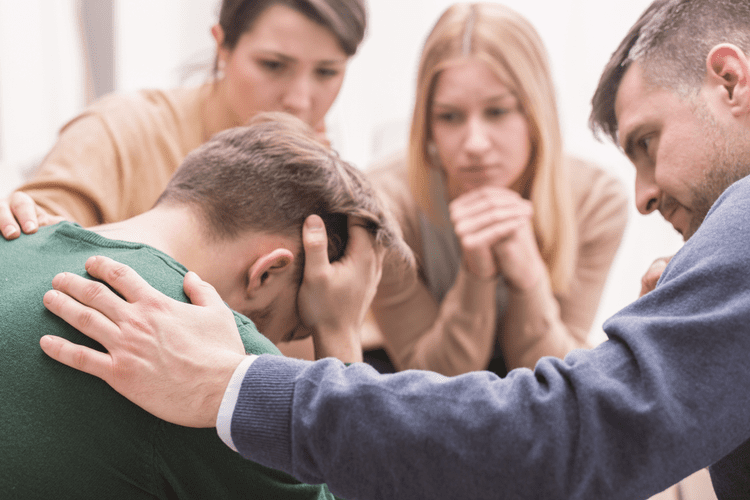When alcohol’s diuretic effect kicks into high gear, you don’t just lose water; you flush out these critical minerals right along with it. It’s the reason you can chug water all morning and still feel terrible—you’re replacing the liquid but not the essential minerals your body needs to actually function. This imbalance is a primary culprit behind classic hangover symptoms like headaches, fatigue, and muscle weakness. However, once the alcohol content hits 4%—the level in many standard beers—the diuretic effect kicks in more seriously. At this point, alcohol starts to slow down your body’s ability to rehydrate. This means that even a regular beer can begin to tip your internal scales toward dehydration.
- Pushing your limits can lead to severe dehydration, hangovers, and other health problems.
- If you’re consuming more alcohol during the holiday season, you’re not alone.
- This will allow us to recover and feel better for the day.
Drink Less and Thrive With Reframe!
This post breaks down the science behind alcohol’s dehydrating effects, exploring how it interferes with your body’s natural hydration processes. We’ll examine the role of vasopressin, a key hormone in fluid regulation, and discuss how alcohol disrupts its function. We’ll also cover the factors that influence dehydration levels, such as the type of alcohol consumed and individual metabolism. Plus, we’ll provide actionable strategies for staying hydrated while drinking and recovering effectively afterward.
Should you drink whiskey if you’re sick?
While the redness is typically temporary, it’s a sign that your body is responding to the alcohol and its byproducts. In people with a genetic predisposition, typically East Asians with the “Asian flush” gene, the body may struggle to break down acetaldehyde, a toxic byproduct of alcohol. As acetaldehyde accumulates, it triggers skin redness and other symptoms. Staying well-hydrated is a simple yet profoundly important health choice. When you ditch the booze and focus on hydration, you’re offering your body an opportunity to shine. While it may induce relaxation and make you forget about your problems for a day, alcohol—especially in excessive amounts—can be severely detrimental to your health.

Cold Crashing Beer: Everything You Need To Know For A Better Taste
Has the beer dehydration led to a lot of bad hangovers for you? Individual hydration needs may vary depending on factors such as body size, the alcohol content of the drink, and environmental conditions. It’s https://creativeprj.com/exploring-the-effects-of-alcohol-on-driving-how-it/ essential to listen to your body and drink water accordingly, especially if you start to experience signs of dehydration. Certain types of alcohol may be marginally better for hydration than others.
Tracking your alcohol intake can reveal patterns and help you identify areas where you might want to cut back. Reframe offers personalized plans, daily tracking tools, and a supportive community to help you re-evaluate your relationship with alcohol and make positive changes. Explore Mindful Drinking resources for additional guidance and support. After a night of drinking, rehydrating is key to bouncing back. This section covers how to replenish your body and when professional help might be necessary.
This includes most hard liquor like whisky, vodka, rum, and gin. These are all over one-third alcohol in total content and thus are more likely to dehydrate you. To understand why alcohol makes you urinate more you need to understand ADH. When the human body senses it is getting dehydrated, ADH is produced by the pituitary gland to reduce urination. While mild dehydration is usually manageable at home, it’s important to know when to seek medical Alcoholics Anonymous attention.
More on alcohol & dehydration
- As mentioned earlier, alcohol suppresses vasopressin, which makes the kidneys release more water.
- Your weight, your overall health, and even how often you drink all play a role.
- And while the greasy diner food might sound amazing, try to eat something light and easy on your stomach.
Aim for at least 8 ounces of water for each standard 1.5 ounce pour of whiskey. Pay attention to signs of dehydration like headache, dizziness and dark urine. Following these tips will help minimize the dehydrating effects of whiskey. how much does alcohol dehydrate you ADH, or antidiuretic hormone, is the unsung hero of fluid balance. It’s produced by the pituitary gland and tells your kidneys to conserve water.
Alcohol and skin FAQ

A critical hormone called vasopressin, which you might also know as antidiuretic hormone (ADH). A spiked cider for the holidays probably won’t do too much to dehydrate you — but it could be a completely different story with hard liquor like whiskey, brandy, and vodka. Make sure you’re aware of the alcohol content in your drinks.
Alcohol Content vs. Dehydration Risk
According to the National Institutes of Health (NIH), an average beer tends to contain 5 percent alcohol by volume (ABV) while the average glass of wine is 12 percent ABV. That means that about 97 calories in a 12-oz beer and 109 calories in a 5-oz glass of wine come from the alcohol, with the rest of the calories coming from carbohydrates. Mixed drinks may contain soda, juice, or other sugar-sweetened beverages as well. As MedlinePlus points out, calories from alcoholic beverages can add up quickly. Unfortunately, alcohol isn’t a significant source of any micronutrients, which means you won’t get any health benefits to go with all of these calories.
